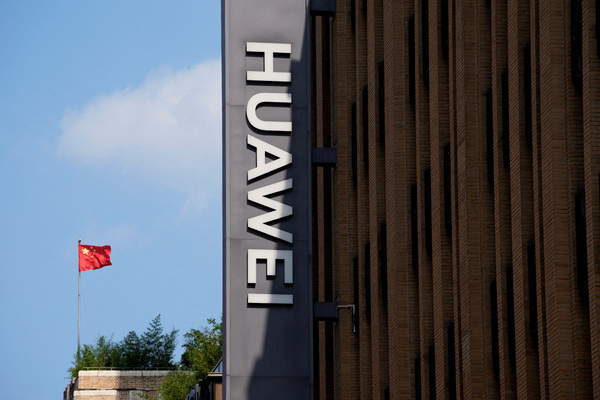The AI content scraping shift

James Barber at Go Up explains what artificial intelligence means for SEO
A silent threat is quietly lurking in the digital landscape, ready to undermine the hard work of small businesses: AI content scraping. This often-overlooked issue can significantly impact your online visibility, SEO rankings, and ultimately — your revenue.
The stakes are high. As AI continues to evolve, businesses must understand the implications of content scraping and take proactive measures to protect their online presence. In the following article, we’ll delve deeper into this issue and explore strategies to safeguard your business.
Content scraping: why should you care?
Simply put, AI content scraping is when automated AI tools pull content — whether that be text, images, or data — from your website and use it elsewhere, often without your permission or credit. The AI tools do this by scanning websites, extracting useful information, and repackaging it into summaries, answers, or insights.
Stolen traffic. The catch here is that unlike traditional search engines, which at least send users back to the source, AI doesn’t always do that. Instead, it may provide the information directly within its interface — say, in a chatbot response or an AI-powered search result — without ever linking back to your site. And that means that even though your content is being used, you’re not getting the traffic, visibility, or credit you deserve.
For businesses, this could be a huge problem, especially when SEO is a key driver of online traffic and revenue.
Ethical implications. Another aspect of AI content scraping that raises concerns is the ethical issue around content ownership. The content you create is often the result of hours of work and investment. When an AI tool scrapes your content and repurposes it without permission or credit, it feels like a violation of intellectual property rights.
While the content on the web is generally accessible, there’s a difference between sharing information and having your hard work used without recognition. This lack of attribution could leave businesses feeling frustrated and exploited, with no way to benefit from their content.
A new digital divide in the age of AI
Is AI content scraping about to create a new digital divide — one where large publishers can protect their content while small businesses are left exposed? It’s a pressing question for entrepreneurship in the digital age. In some ways, AI scraping feels like the next step in a trend that’s been unfolding for years.
Google’s evolution is a prime example: from Featured Snippets to People Also Ask and now AI-powered Overviews, these tools repackage content so users can get answers without ever leaving the search engine. Still, most businesses — large or small — wouldn’t dream of blocking Google. The chance of getting a click is better than no click at all, right?
With AI scraping, though, things get a little more complex. Big publishers have the leverage to push for licensing or block AI access, while smaller businesses just don’t have those options. That creates a deeper divide. Small businesses already have to work harder to gain visibility on Google, and now they have to think even more critically about how to compete in an AI-dominated landscape.
For entrepreneurship, this means small businesses might feel less incentivised to produce rich content, as they could see fewer returns from all their hard work if AI tools just scrape and reframe it without any credit.
Ultimately, this digital divide could reshape how small businesses approach content altogether, leading them to rely less on open content marketing and more on exclusive or gated experiences that AI can’t easily scrape or duplicate.
Rethinking digital marketing strategies
If AI chatbots start freely repurposing content without driving traffic back to business websites, how will companies need to adjust their digital marketing strategies? The answer lies in shifting gears.
Many small businesses rely on organic traffic, but if AI overviews keep people on their platform rather than driving clicks, those opportunities diminish. Just like we’ve seen with Google, where snippets and People Also Ask pull from a variety of sources, AI will start presenting a composite view of the web’s content.
For big companies, this might not be a big issue, as they’re already visible. But for smaller businesses, the need to find new ways to stand out becomes even more pressing.
One way they can compete is by shifting away from purely public content strategies and focusing on less ‘scrapable’ spaces like private groups, community-driven forums, and real-time interactions. Think of it as going back to ‘dark forests’ of the internet; in response to ads, tracking, and now AI content scraping, people are retreating to more private, closed-off communities — places like forums and social media groups.
For small businesses, this means building loyalty through exclusive access and personalised experiences that aren’t as easy for AI to replicate or repackage.
In terms of monetisation, we could see more subscription-based or ‘freemium’ content. For instance, a fitness blog might still put out general workouts for free but reserve personalised coaching or exclusive Q&As for paying members.
These types of value-added offerings protect the content’s uniqueness and give customers a reason to stick with the source, rather than relying on AI-driven summaries.
The risk of a data exodus
If small businesses start feeling that they’re losing control over how their content is used, they may pull back from open content marketing and instead focus on gated or private spaces.
As people grow tired of ads, tracking, and now the idea of AI taking content without giving back, we could see a retreat to more exclusive areas on the internet, away from the mainstream. Businesses may increasingly turn to platforms that offer better control over their content — private groups and email-based communities, for instance.
This shift could fundamentally change the internet as a resource. Instead of being open and accessible, we could end up with more ‘walled gardens’ where users have to pay or subscribe to get high-quality information. This would impact both users, who’ve come to expect open access, and AI models, which rely on a broad pool of data to train effectively.
If regulators don’t strike a balance that supports both small businesses’ rights and the responsible development of AI, we could end up with a much more closed, segmented internet that deepens economic divides in access to information.
A bleak future for the open internet?
The implications of AI content scraping extend far beyond individual businesses. If creators and businesses feel their content is being exploited without proper compensation or recognition, they may retreat to more closed-off platforms and strategies. This could lead to a fragmented internet, where access to high-quality information is limited to those willing to pay or subscribe.
In this scenario, the open internet, as we know it, could become a relic of the past. Instead, we may see a rise of walled gardens. This shift could have huge consequences for both businesses and consumers, limiting innovation, stifling competition, and hindering the free flow of information.
We must strike a balance between technological advancement and ethical considerations. By protecting the rights of content creators and promoting responsible AI development, we can maintain an open internet, where information flows freely and innovation thrives.
James Barber is Head of Strategy at Go Up, a leading SEO agency based in London
Main image courtesy of iStockPhoto.com and bigtunaonline

Business Reporter Team
Most Viewed
Winston House, 3rd Floor, Units 306-309, 2-4 Dollis Park, London, N3 1HF
23-29 Hendon Lane, London, N3 1RT
020 8349 4363
© 2024, Lyonsdown Limited. Business Reporter® is a registered trademark of Lyonsdown Ltd. VAT registration number: 830519543





